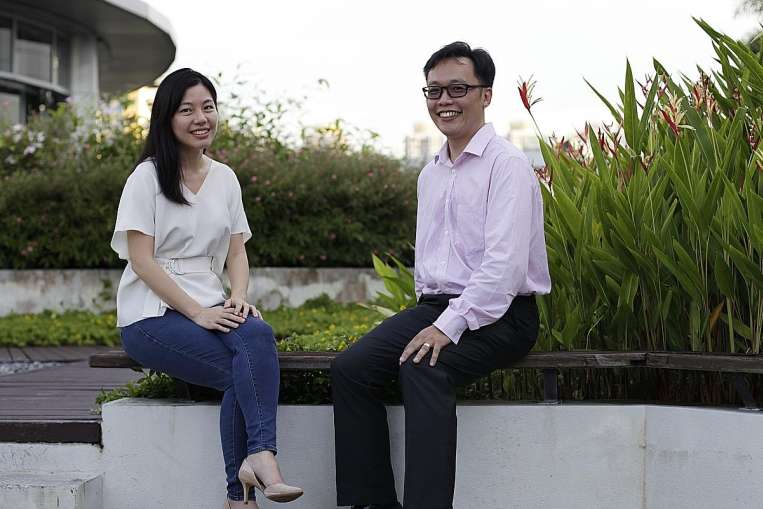Universities here beef up graduate courses and students see need for higher-level skills
 Ms Seet obtained her Master of Science in innovation from SMU. Mr Lo completed his master's in Technology (Enterprise Business Analytics) at NUS. Photo by Gin Tay for The Straits Times
Ms Seet obtained her Master of Science in innovation from SMU. Mr Lo completed his master's in Technology (Enterprise Business Analytics) at NUS. Photo by Gin Tay for The Straits Times
Getting a master's degree has become more common here, as local universities boost their graduate programmes and Singapore see the need to improve their skills and knowledge in a rapidly changing work environment.
More master's programmes in fields such as leadership, translation, law and science are now available, and they can cost from nearly $20,000 to more than $100,000.
The Singapore Management University (SMU), for instance, has 21 master's programmes, up from 12 in 2010. It had nearly 700 students graduating with a master's degree last year, compared with about 300 in 2011.
Singaporeans and permanent residents made up about a third of last year's intake.
The National University of Singapore (NUS) had 5,100 students - about half of whom were local - enrolled in master's programmes in the last academic year, about 7 per cent more than five years ago. It now has 114 programmes, with 11 added since 2011.
UniSIM admitted 378 new master's students this year, up from 269 last year.
Nanyang Technological University (NTU), which offers about 70 master's degrees, has taken in about 1,700 students annually for these courses in the past five years.
An NUS spokesman said master's degrees are "often designed to fill critical skills gaps, at an advanced level, that correspond to strategic growth areas both in Singapore and globally".
It is offering three new programmes this year, in chemistry for energy and environment, Chinese culture and language and one in international arbitration and dispute resolution, to meet higher demand for trained personnel in these areas.
An NTU spokesman noted that postgraduate students are more "driven towards self-improvement" and "acquiring new knowledge and strategic thinking skills (that) help them to advance in their careers".
For instance, its Master of Business Administration graduates, on average, more than doubled their incomes three years after completing the course, earning more than $170,000 annually.
An SMU spokesman added that some pursue higher degrees "partly for the intellectual curiosity, a sense of accomplishment or validation".
Ms Jada Seet, 32, who graduated this year from SMU's Master of Science in Innovation programme, wanted to learn how to build a business from scratch.
She had been working in fashion design for more than a decade, after graduating from Temasek Polytechnic with a fashion-design and merchandising diploma in 2003.
"I wanted to consolidate my work experience into some structured learning so I did some research on courses out there," said Ms Seet.
"I saw a lot of business courses, but SMU's innovation programme stood out, because, in order to stay relevant, businesses need to innovate and learn new ideas."
Mr Ian Lo, 42, who holds a Bachelor of Science in computing from NUS, said: "There is a huge push towards data science and analytics."
He took 2.5 years to complete a master's degree in Technology (Enterprise Business Analytics) - jointly offered by the Institute of Systems Science at NUS and the university's engineering faculty - while working as a solution architect in a consultancy in the logistics sector.
"I found my passion in data analytics during the course and decided to look for a new job," said Mr Lo, who joined CrimsonLogic, a provider of eGovernment solutions and services.
Armed with her new qualification, Ms Seet and three classmates from the course have since been working on a start-up to provide solutions in healthcare and ageing.
"We looked at emerging needs in the market and how to turn ideas into a business," she said.
"It was a challenge going back to study, to balance readings, assignments with work, but we hope our experience and training in this programme will be useful."
Source:
The Straits Times, 29 August 2016